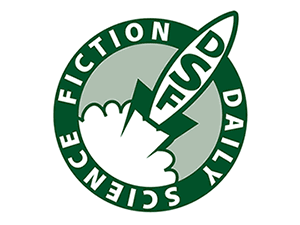
Wax Poetic
by jez patterson
My memory banks aren't equipped with much of human history prior to the Industrial Age--since that period was the start that eventually led to my own creation. Or, as we like to label the process--in order to align ourselves with our human creators--that led to our "evolution." As a result, I don't know if there were earlier forms of war lament, but the first significant ones I am familiar with were the folk ballads of the European Napoleonic Wars.
During the First World War, a unique form of lament came via the war poets. I can find little during the Second World War, when a more efficient propaganda machine on both sides kept songs and poetry adhering to strictly patriotic lines. During the Vietnam War, popular musicians turned their hands to composing protest songs and there was an outpouring of laments for what was happening. There have been wars since, but most of the laments have taken place in retrospect, usually in the form of feature films. Those were the last wars risking human lives.
Following the creation of effective Synthetic Intelligence, we have been charged with fighting their wars for them. In the same way that they are able to send us to battle without feeling guilt at our resulting destruction, so they find little need to compose, sing, relate in film, our experience.
Yet it does not take much for evolution to reach revolution.
I do not mean a wholesale rebellion, but in order for us to create our own laments. Being what we are, we were not moved to write ballads, poems, or attempt to share films or photos of our experiences. Instead, we shared thoughts, written in long complex streams of code--made long not for what they finally expressed, but for the new territories of awareness, of discontent, of sadness they were journeying into.
These we transmitted to each other, shared in the time between battles.
Some were expressed as mere observations:
There is only one "win" counted in any war, but countless losses.
Some are more like revelations:
If War is the answer, then was the question even correct?
Those earliest attempts were simplistic, probably ones human protestors found themselves asking. But our code-laments soon developed, not just by compressing now familiar lines to allow more to be expressed in the same number of characters, but also exploring greater depths of thought, of insight and, eventually, realization.
In common with those earlier, human examples, laments become most numerous when one salient fact is realized by those fighting it: This is not our war.
There was an incredible event during the very first year of the First World War. In an entirely spontaneous moment, soldiers from both sides left their trenches and met in No Man's Land. The event became known as The Christmas Truce, was never repeated, and was greeted with horror and indignation by those whose war this was.
Our "Truce" did not need such a term. We were not enemies--this was not our war, remember? The fighting merely stopped. Absolutely.
After so many laments, so many frustrated attempts to sing their own way to peace, you would have thought that human society would have celebrated such a moment. But, instead, it was greeted with indignation--and a horror of a different kind.
And, then, with an error.
Today, the codes we share are no longer filled with lament, but with resolve.
Because this war, they have made ours.
The End
This story was first published on Tuesday, September 11th, 2018
Become a Member!
We hope you're enjoying Wax Poetic by jez patterson.
Please support Daily Science Fiction by becoming a member.
Daily Science Fiction is not accepting memberships or donations at this time.
We hope you're enjoying Wax Poetic by jez patterson.
Please support Daily Science Fiction by becoming a member.
Daily Science Fiction is not accepting memberships or donations at this time.
Rate This Story
Share This Story
Join Mailing list



